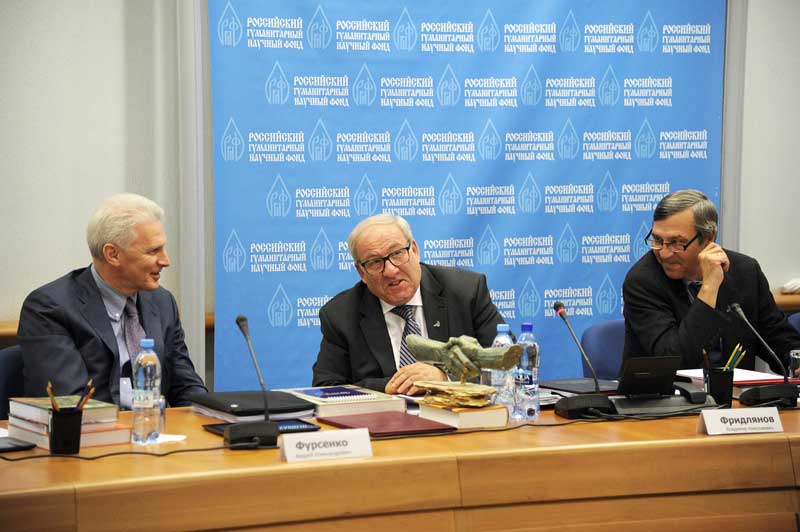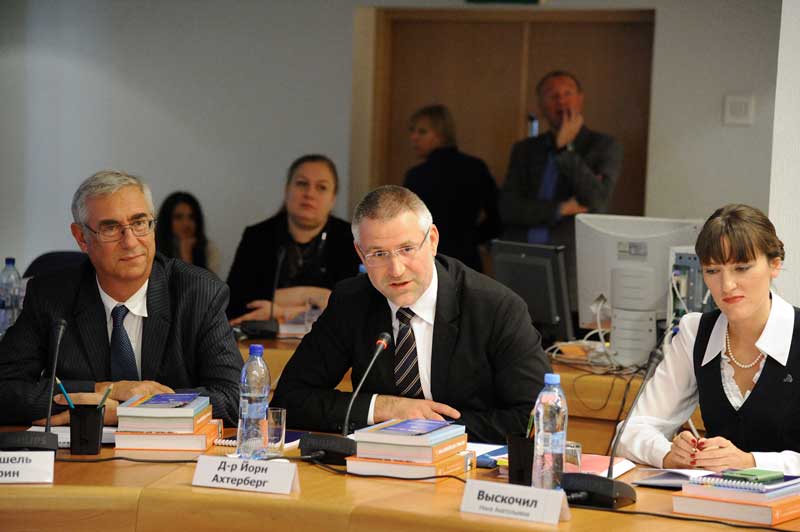20 years of the Russian Foundation for the Humanities (RGNF)
(24.11.14) In the autumn, the Russian Foundation for the Humanities (RGNF) held a special meeting of its Council to mark its 20th anniversary. The foundation was established in 1994 in accordance with the principles of academic self-governance as one of the first funding organisations for basic research in Russia. The Deutsche Forschungsgemeinschaft (DFG, German Research Foundation) congratulated its Russian partner organisation on its anniversary and also participated in the special meeting of the Council.

Anniversary meeting of the RGNF Council with A. Fursenko, V. Fridlyanov and J. Vorotnikov
The Scientific Council, the RGNF's highest body, is made up of 26 respected academics, senior ministry officials, and representatives of the Academies of Sciences and Russia's leading universities. The attendees included long-serving science minister and now advisor to the President of the Russian Federation Andrei Fursenko, the chair of the Council of the Russian Foundation for Basic Research (RFFI), Vladislav Panchenko, and the director general of the new Russian Science Fund (RNF), Aleksandr Khlunov. The DFG and CNRS were invited to the special meeting for the first time as international partner organisations. Vladimir N. Fridlyanov, former deputy science minister and serving chair of the Council of RGNF, presented the high points of the foundation's activities over the past 20 years and highlighted the growing importance of international cooperation.

Jörn Achterberg (DFG Moscow) conveys the congratulations of the partner organisation
The director of the DFG's liaison office in Moscow, Jörn Achterberg, conveyed the congratulations of the German partner organisation. An agreement has been in place between the DFG and RGNF since 2005 on the funding of German-Russian research projects. The thematically open announcements issued jointly by the two organisations are the only opportunity for German and Russian researchers to carry out bilateral projects in the humanities on a free competitive basis in line with the bottom-up and peer review principles.